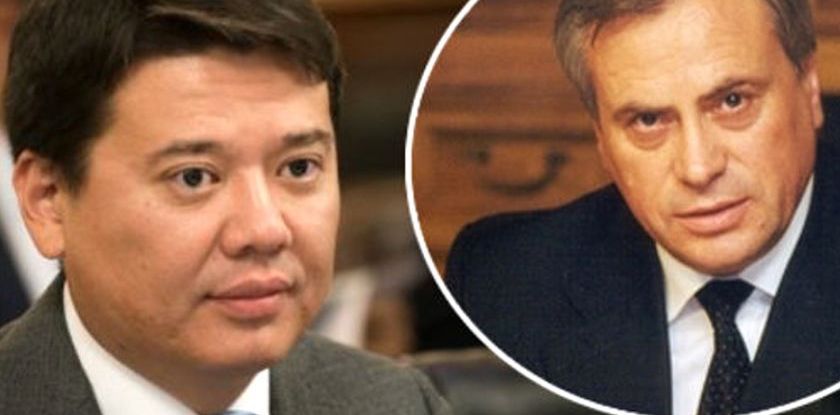Akorda’s war against the Statis has become of a permanent nature. It allows Kazakhstan’s Ministry of Justice to keep on their toes a huge army of legal professionals in all kinds of jurisdictions. So what? The state is paying for it.
The legal fight for almost a half a million dollars is far from being finished. Kazakhstan’s Ministry of Justice chaired by the resilient Marat Beketayev is using all possible procedural hitches to stop implementing the arbitration court’s decision obtained by the Moldovan investors in Sweden back in 2013.
(You will recall that, according to this decision, Kazakhstan is to recompense the Statis’ companies for the assets confiscated in Kazakhstan).
Here is the latest report from the frontline: the Dutch prosecutor is recommending to overrule the decision on implementing the arbitration ruling obtained by the Statis. The press-service of Kazakhstan’s Ministry of Justice proudly announced it on June 4, 2021. Since we haven’t been able to find this recommendation on the website of the Supreme Court of the Netherlands, we will present the prosecutor’s opinion based on the press-release of the RK Ministry of Justice. But first, we would like to call the reader’s attention to these two circumstances.
The first one is the date when the Ministry of Justice’s press-release was published. What is interesting about it is that, it is on this day, June 4, 2021, the Dutch authorities informed the public on the replacement of the Supreme Court prosecutor. Contrary to the news on the Statis case, this announcement was published on the agency’s website. Therefore, it remains unclear who has made the statement the RK Ministry of Justice is citing — the departing or the arriving prosecutor. Meanwhile, this circumstance is of a vital importance.
The thing is (and this is the second circumstance we have mentioned) that, in this particular case, the title «prosecutor» is misleading. The prosecutor working at the Supreme Court of the Netherlands performs the role of an independent advisor who provides the court members with all the necessary information and gives recommendations («advisory opinion») on the cases that are being prepared for trial. The prosecutor’s recommendations have no official power; on the other hand, they, of course, can play the crucial role in arriving to a decision.
The Supreme Court of the Netherlands (Hoge Raad dear Nederlanden) is the country’s highest judicial body. The court is responsible for hearing cassation appeals.
Now then, according to the RK Ministry of Justice, on June 4, 2021, the prosecutor (or, rather, the advisor) at the Supreme Court of the Netherlands announced that the Supreme Court should satisfy Kazakhstan’s complaint by overturning the ruling of the Amsterdam Court of Appeal that, in July 2020, recognised the validity of the Arbitration Institution of the Stockholm Chamber of Commerce’s decision made in favour of the Statis.
The thing is that, as a result of last year’s decision, the Statis have got the right to recover the assets on the territory of the Netherlands. And the main one of these assets is the shares of the Dutch KMG Kashagan B.V. that owns 16,88% of the shares in the biggest oil extraction project at the Caspian.
The PSA agreement was signed back in 1997 (when the deposit had not even been found), however, Kazakhstan’s significant involvement in the project was legally ensured only in 2005 when KazMunaiGas NC registered KMG Kashagan B.V. in the Netherlands.
The prosecutor is recommending to overturn the appellate court’s decision basing his opinion on the fact that the appellate hearing procedures had been violated. In his opinion, the Statis’ complaint should have been examined not by the Amsterdam Court of Appeals but by the Amsterdam District Court. It is difficult to say if it would have changed the outcome and it what way. But decisions are often made in the maze of procedural debates especially if they involve highly-paid legal professionals.
Therefore, if the judges follow the advice of the prosecutor, the Statis will lose their right to arrest the assets. Which will give a chance to Beketayev’s attorneys. The representatives of the RK Ministry of Justice are hoping that the new trial held at the District Court will invariably end in denouncing the Statis who, as the Kazakh authorities are trying to prove, «have tampered with the documents at the previous trial… in order to exclude the proof of their fraud».
In reality, the only proof that the fraud existed lies in the accusation of exceeding the costs of the gas plant construction on the part of the Statis. These expenses were included in the sum of the compensation for the assets collected from the investors. It is an old story debated in the courts of different levels and in different jurisdictions. We, however, have been struck by a new aspect of this story.
According to the press-release of the RK Ministry of Justice, the key facts reflecting «the Statis’ wrongdoings» are contained in the correspondence with the KPMG audit firm dated 2016. In this correspondence, the auditor expresses «doubts in the accuracy of the financial reporting and says that the Statis have refused to answer the KPMG questions» related to the fraud. However, as the representatives of the RK Ministry of Justice state, these facts have not been revealed at the Amsterdam Court of Appeals. And they have remained secret during several years. There!
Beketayev’s attorneys found this «secret correspondence» only in October 2019. As the reader has probably guessed, this happened after the Netherlands trial had ended. A job well done!
The RK Ministry of Justice blames the Statis for everything. Allegedly, the businessmen, «despite the numerous official requests from Kazakhstan, have refused to make changes to the documents and submit this important proof to the Dutch court». On the other hand, the Kazakhs say nothing about the KPMG auditors who were incredibly vigilant in 2016 but not so much during the trial.
All this does not look terribly convincing. Especially since, according to the data we’ve received from quite reliable a source, all the letters written by the KPMG auditors were submitted to the Amsterdam Court in August 2019. And they had been admitted by the court as the RK Ministry of Justice’s argument but were taken examined only in July 2020.
Therefore, one can say that Beketayev was simply not satisfied with the trial and now the Kazakh attorneys are trying to move the hearings to another court — the Amsterdam District Court.
We can offer several explanations regarding such a strange conflation of events.
Firstly, we do allow for the possibility that, at all these trials, Beketayev’s representatives have been performing a part in order to buy some time to continue the behind-the-scenes negotiations with the Statis’ lawyers.
Secondly, we believe they have simply been stretching the time… to prolongate the process in order to give the trusted legal firms an opportunity to make money. Otherwise, it is very hard to find an explanation for why the case have been dragging on for almost a decade during which the attorneys from the leading western firms have been receiving payments for handling the matter in all kinds of states.
Of course, the first scenario does not exclude the possibility of the second; it simply complements it thus making it look more like a usual business-plan.
And it is this circumstance that is becoming all the more evident to most political observers in Kazakhstan and the West. Especially since hitting «only» Beketayev does not mean as much as hitting the RK Ministry of Justice in its entirety.
Be as it may, the story continues. The hearing at the Supreme Court is scheduled for November 2021. Before this time comes, Beketayev’s attorneys are going to «keep busy». They will continue keeping busy even after the favourable (for Kazakhstan) verdict will have been reached and probably even if the ruling will be negative. War is good for business as they say.
Published by KZ.MEDIA





